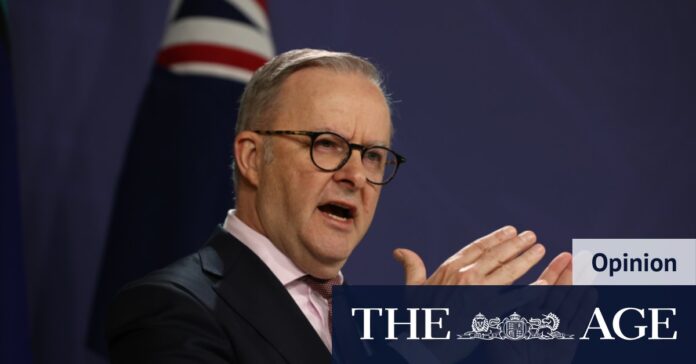[ad_1]
Loading
Yet, there is a risk that attempts to improve things will only end up making them worse. That’s why Treasury will have to keep its thinking cap on to come up with some good ideas.
So here’s mine …
Australia raises about $17 billion a year from taxes on imports. (There are all sorts of exemptions, notably due to free trade agreements. But many products are taxed 5 per cent on arrival here, raising more than $1 billion, with the remainder dominated by the GST paid on imports.)
So, how about we halve our taxes on imports for a year? Doing that eases the cost of living – your dollar will stretch further in buying all sorts of stuff. Even better, much of the resultant extra spend will be on imports (because it is suddenly cheaper to buy from overseas than before).
That’s an important part of this plan because higher imports don’t increase the demands being placed on Australia’s stretched economy, and so they’re less likely to add to inflation here. (See the magic? This idea would raise inflation in other nations more than it raises inflation in Australia.)
This would only be a temporary tax cut because the problem with your cost of living is also temporary.
Loading
The important gain is that there’s a cost-of-living benefit to Australian families. But it’s just as important that the improved cost of living isn’t then lost in a puff of inflation. That’s why this idea aims to limit any boost in demand for Australian businesses – because that’s the very inflation risk that this measure is trying to avoid.
Halving import taxes could reduce consumer prices by about half a per cent – thereby making both families and the Reserve Bank happier.
For those with an eye on the politics of this, it would also neutralise the inflation risks of the stage 3 tax cuts.
And, completely coincidentally, prices would jump back up after the next election.
Is this a perfect suggestion? No. GST revenues go to the states, so the feds would have to get their agreement to be topped up by grants for a year instead – or, if the states won’t play ball, there’d need to be a separate import rebate.
And it isn’t just the legalities that’d be tricky. The economics would be too. Not all the cost-of-living relief from cutting taxes on imports would end up being either spent on imports or saved – the two things that wouldn’t threaten a worsening in inflation. But plenty of it would go to imports or savings, making this idea rather better than most.
So here’s hoping …
[ad_2]
Source link



